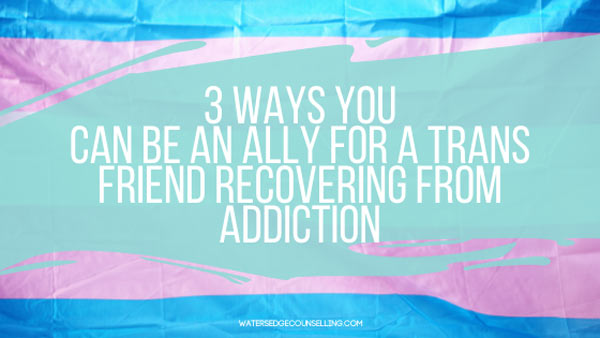
Addiction can impact anyone, and it goes without saying that everyone needs support as they enter recovery. However, for some people there are greater barriers to receiving help because of societal stigma. Think about differences in age, socio-economic status, ethnic background, religion, gender identity or sexuality –all of these factors can unfairly influence how, and if, people are given the support they need to overcome addiction.
In this infographic by Sunshine Health, we are reminded about the additional barriers our transgender friends and family members experience societally due to their identity. Who is the transgender community? Transgender people identify with a different gender from which they were given at birth. They may or may not be undertaking, or have undertaken, treatment to change their appearance. And their resilience and strength as a community, and individually, is profound.
Many people struggle with substance abuse due to multiple circumstances, and it’s essential we remember that when people who are trans experience addiction, this is not a symptom of their identity at all, but rather a consequence of multiple outside factors. These can impact treatment – so here’s three unique ways you can be an ally and support them as they pursue recovery.
-
Always use their pronoun and preferred name.
If someone you know has asked you call them an alternate name, and identify them as she/her, he/him or they/them, respectfully do so. This is about their identity and valuing their agency as a human. By referring to them by their preferred name and pronoun, you show you are a trustworthy friend and that you value their recovery.
-
Look for professionals who treat your loved one with respect, integrity and decency.
Your friend deserves the same treatment opportunities and support as everyone else, so don’t tolerate clinicians, programs or fellow residents who abuse, ridicule, threaten or show prejudice towards the trans community. If your friend incites you to support them in recovery, actively seek out professionals who have an open LGBTQ+ policy, and who have a proven track record with understanding and supporting the Trans community.
-
Accept how your friend chooses to dress and uses cosmetics, even if they societally go against the gender they were assigned at birth.
How someone dresses should not impact if, how and when they receive help and support. So, before you even look for a professional who will accept and support your friend, it’s vital you do first.
Know that for some people, these fashion choices may change day to day – and that’s ok. Your friends accept you for the way you dress and style yourself, and now you can accept them too. This is one of the simplest ways you can show them respect and be an ally.
Want more resources or supports?

Do you want to better support a friend or loved one who is trans? Are you questioning your sexuality and want a safe place to learn about yourself? Contact Colleen on 0434 337 245 or Duncan on 0434 331 243 for a FREE 10 minute consultation on how we can best help you or book online now.
Leave a Reply